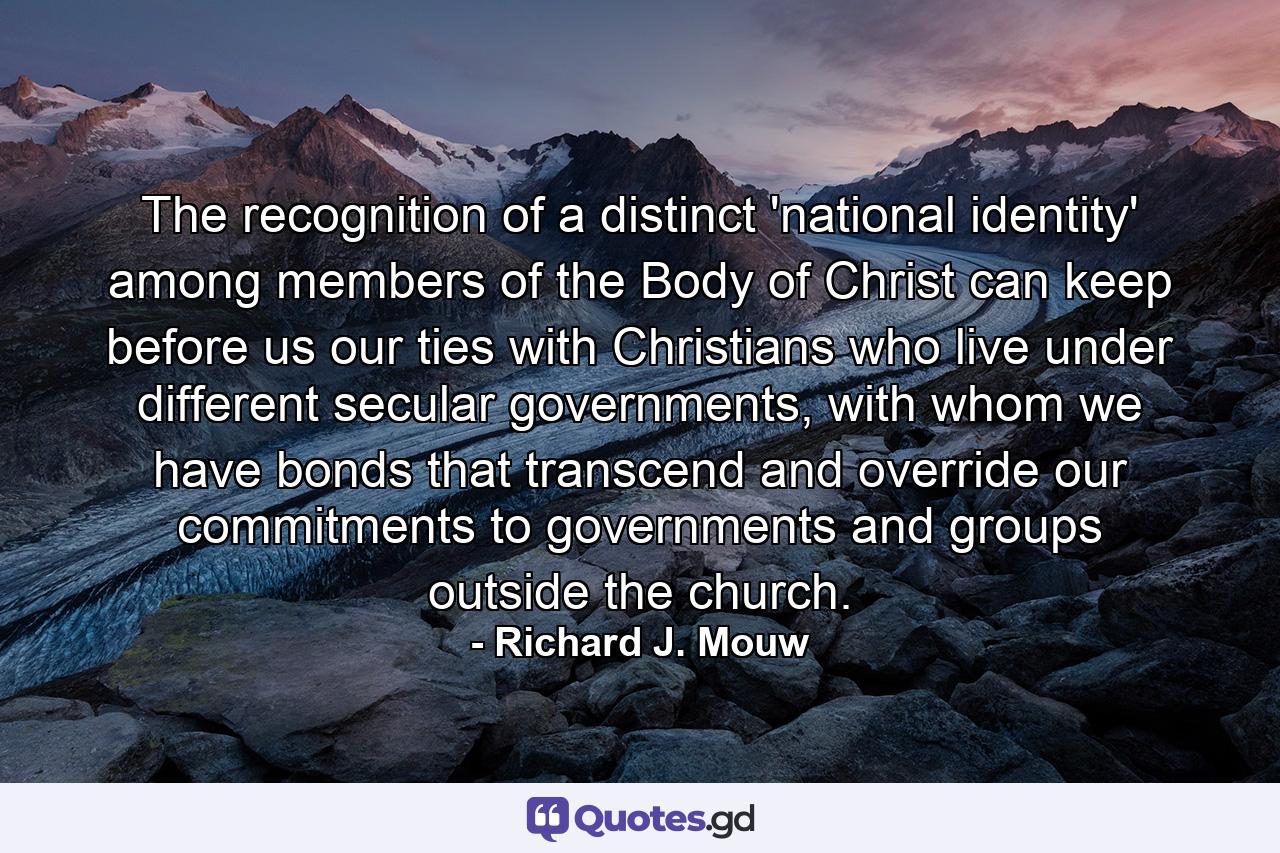... no sensitive Christian can be satisfied with a distinction between righteousness and unrighteousness drawn only between communities, with each individual belonging unambiguously on one or the other side of the line. The behavior of "the righteous" is often very disappointing, while "the unrighteous" regularly perform in a manner that is much better than our theology might lead us to expect of them. Thus the need for a perspective that allows for both a rather slow process of sanctification in the Christian life and some sort of divine restraint on the power of sin in the unbelieving community. These theological adjustments to a religious perspective that might otherwise betray strong Manichean tones provide us with yet another reason for openness to a broad-ranging dialogue: Christians have good grounds for believing that their own weakness can be corrected by encountering the strengths of others.


